Different Type of Fences Pictures
There are so many products on the market that target oily skin, dry skin or sensitive skin — but how can you figure out which type of skin you have?
"Most people ... are wrong when they guess their skin type," Dr. Leslie Baumann, dermatologist and author of "The Skin Type Solution," told TODAY Style in an email. "They are most wrong about whether they are oily or dry and if they have sensitive skin."
It can be especially tricky to figure out your true skin type because it can change over time and can be affected by climate, hormones and diet. (There's also some debate over whether "normal" and "sensitive" skin are even true skin types at all.)
Here's some advice from dermatologists on how to figure out your own skin type, along with skin care tips and cleanser and moisturizer recommendations for each.
1. Oily skin
The skin secretes natural oils to keep itself moisturized, but for people with oily skin, this process can go into overdrive, especially if they have larger pores.
"The bigger the pore, the more active the oil glands, and the more active the oil glands, the more they'll secrete," Dr. Doris Day, founder of Day Dermatology and Aesthetics in New York City, told TODAY Style.
This can translate to an oily film on your face throughout the day, as well as frequent breakouts.
"You're prone to oily skin if you notice that when you apply moisturizer, and almost anything you apply, you break out," Day said.
People with oily skin may also "have trouble finding a sunscreen that does not feel sticky and heavy," Baumann said.

If you have oily skin, you should avoid using thick creams and moisturizers. However, that doesn't mean you should skip hydration altogether.
"Oily skin can still be dry, because oil and water are two different things," Day said.
She recommends hydrating oily skin with hyaluronic acid, an ingredient found in many moisturizers. Hyaluronic acid helps the skin retain water, without leaving a greasy film on the top layer.
When it comes to cleansing, she's a fan of this face wash and mask from Neutrogena.
Neutrogena Clear Pore Facial Cleanser / Face Mask, $7, Amazon
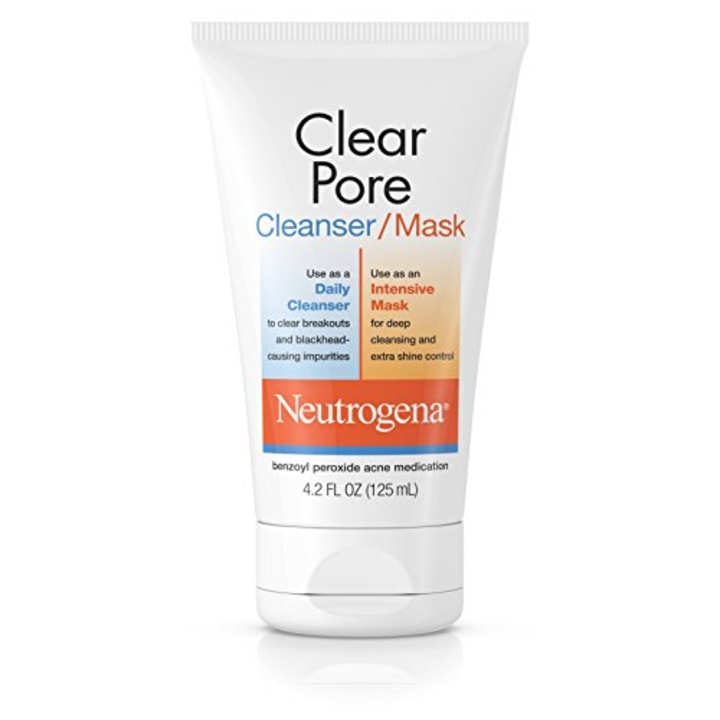
Day likes this product in particular because it contains 3.5% benzoyl peroxide, which helps target bacteria that causes acne.
"I prefer it as a mask that you leave on for 3-5 minutes," she said. "(This) can be done daily or several times a week in oily or acne-prone skin."
To moisturize oily skin, Day recommends this hydrating formula from Avene.
Eau Thermale Avene Cleanance Expert Lotion, $26, Amazon
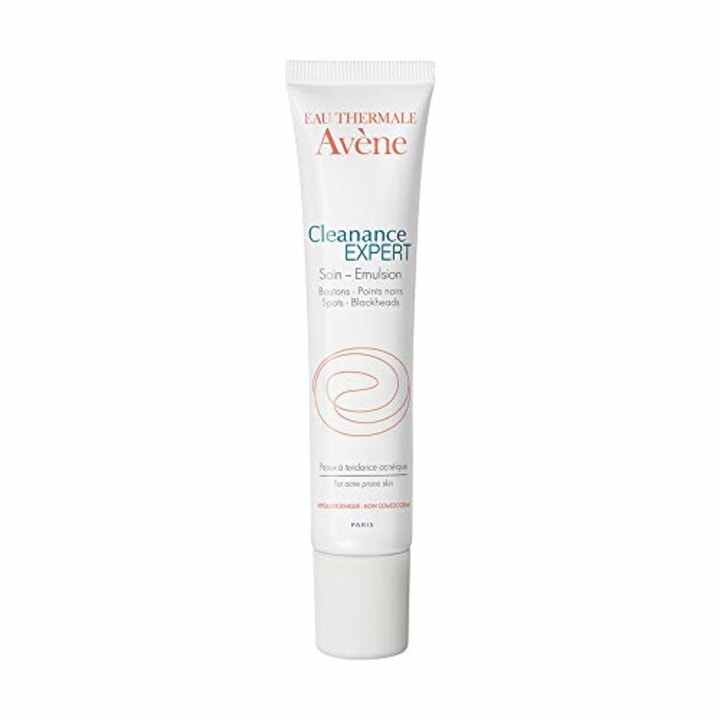
It "contains 6% glycolic acid and helps reduce the appearance of pores," she said.
If you have very oily skin, Days says you might consider skipping moisturizing in the morning, and just hydrating at night (but never skip sunscreen in the morning).
2. Dry skin
The number one sign that you have dry skin is if it appears dull and lifeless, Day says.
Dry skin looks dull because it's often covered in a layer of dead skin cells. Light reflects off these rough skin cells in all different directions, whereas if your skin is hydrated, it has a smooth surface that reflects light evenly, and so appears more radiant.
Many factors can lead to dry skin, including sun exposure, hot showers and over-exfoliating with products like salicylic or glycolic acid.
Also, as we age, the skin naturally gets drier thanks to hormonal changes, Day says.
It sounds obvious, but if you're prone to dry skin, the most important thing to do is keep it hydrated.
"Just hydration to the skin will make it look younger, plumper and more radiant," Day said.
Baumann recommends avoiding very hot showers and steering clear of products containing detergents or sulfates, which can irritate the skin.
When it comes to moisturizing, dry skin can handle a creamier product, rather than a lotion or a gel. Use a cream moisturizer morning and night in addition to sunscreen, Day recommends.
She's a fan of this face cream from Revision.
Revision Skincare D.E.J Face Cream, $87, Walmart
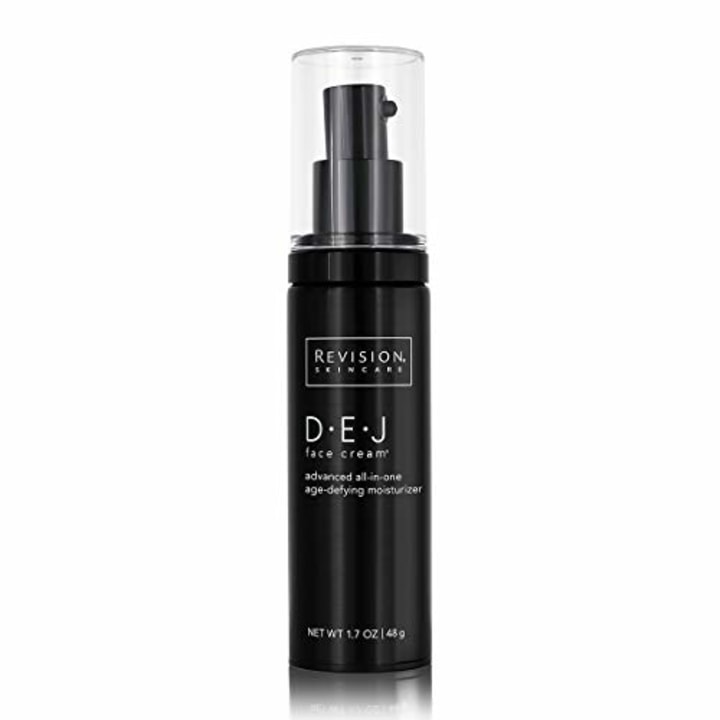
It "has time-released retinol along with bakuchiol (a natural retinol alternative) to help hydrate and rejuvenate dry skin while you sleep," Day said.
When it comes to cleansers for dry skin, she loves this SkinCeuticals gentle cleanser.
Skinceuticals Gentle Cleanser, $37, Amazon
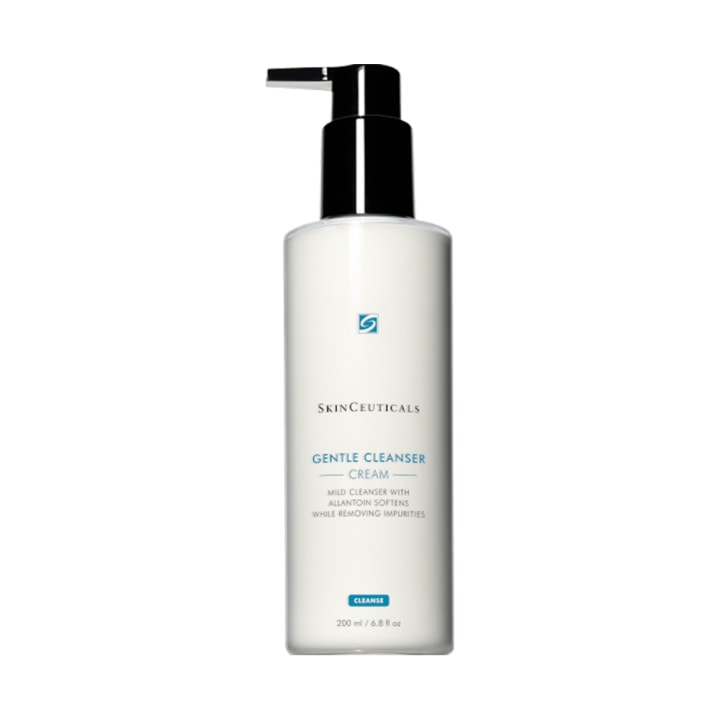
The cleanser "contains glycerin and fruit oils and gentle surfactants specially designed for dry or sensitive skin," she said.
3. Sensitive skin
"Sensitive skin is skin prone to inflammation," Baumann said.
People with sensitive skin may have acne, rosacea or contact dermatitis, a type of red, itchy rash. Sensitive skin may also be especially prone to stinging or burning, she said.
She added that people with sensitive skin may have overreactions to certain ingredients and, for that reason, they should avoid overly harsh compounds in all their beauty products beyond skin care. For example, people with acne should avoid isopropyl myristate, a popular ingredient in hair conditioners.
To avoid irritation, Baumann says people with sensitive skin should avoid friction, excessive heat and triggers like alcohol or stress, if those tend to affect your skin.
In Day's eyes, sensitive skin also overlaps with the dry skin type.
"I think of dry skin as sensitive also," Day said. "Like if you apply anything to it, it stings or burns or turns red."
She says that sensitive skin isn't necessarily a permanent skin type, but rather one that can be caused if you overscrub or overexfoliate, or use overly harsh products.
"Most skin, if you use the right products, is not as sensitive as you think it is," Day said.
For cleansing sensitive skin, Day is a fan of this gentle face wash from Neutrogena.
Neutrogena Ultra Gentle Daily Cleanser, $8, Amazon
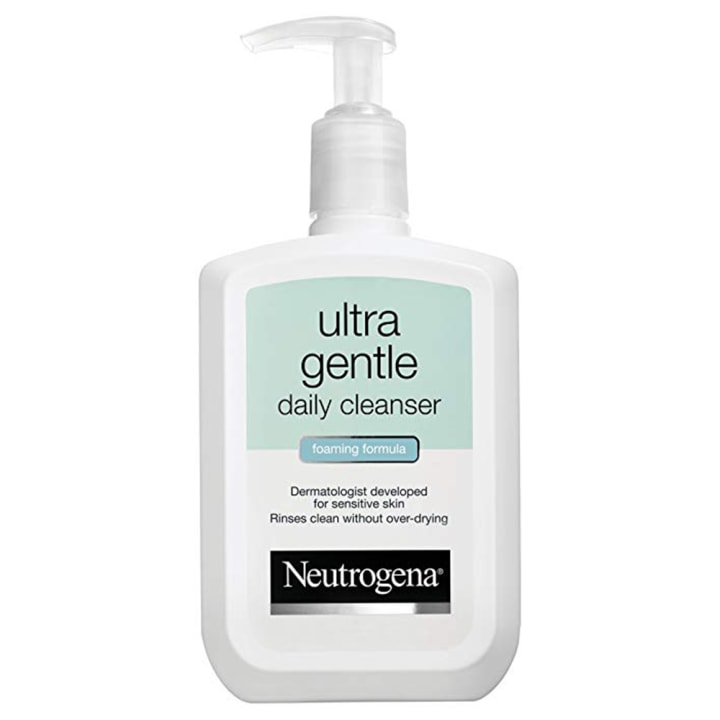
It's "super gentle (and) comes in foaming and non-foaming formulas," she said. It's "great for sensitive skin (and) gets it clean without leaving a film behind."
For a dry skin moisturizer, Day swears by this PCA hydrating serum.
PCA Skin Hydrating Serum, $80, Amazon
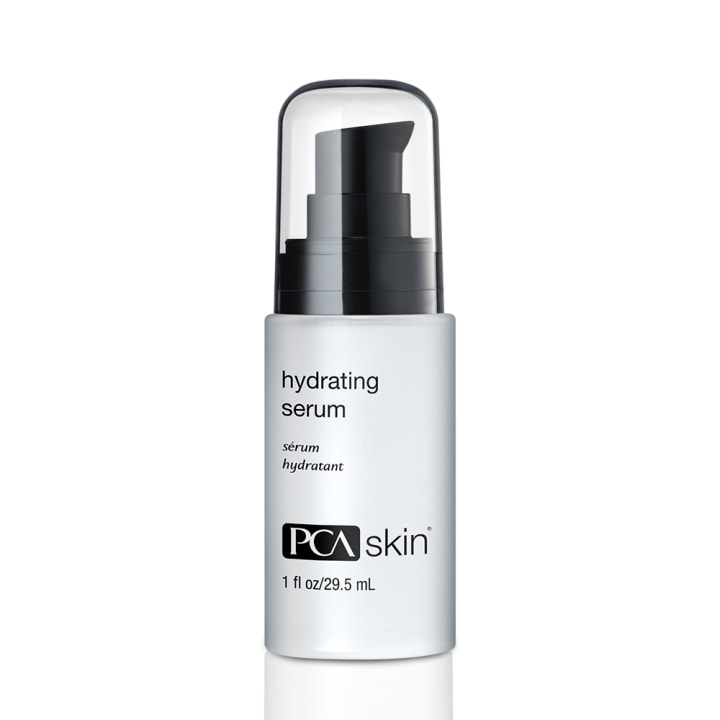
"(It) contains antioxidants and moisture-binding ingredients to help prevent water loss from the skin and improve the skin barrier," she told TODAY.
4. Combination skin
There's not a universal definition for combination skin and some dermatologists, including Baumann, think it's not a true skin type like oily or dry.
"Skin type can change seasonally," Bauman said. "Combination means you are dry in winter and oily in summer. Some people incorrectly use it to mean oily in the T-zone but this is classified as an oily skin type."
Other dermatologists argue that combination skin is a distinct skin type characterized by varying amounts of oil production on the face.
"Combination skin tends to be oilier in the forehead and nose where you have more oil glands, and drier on the cheeks," Day said. "Sometimes around the mouth can be both dry and oily and more sensitive in general."
If you do feel like your T-zone is oilier than the rest of your face, Day recommends using a product suited for oily skin on just on those areas.
"You can actually apply different products to the nose and forehead," she said.
You can also alternate cleansers depending on how dry or oily your skin feels during different seasons or times of the month.
For cleaning combination skin, Day swears by this foaming cleanser from Restorsea.
Restorsea Pro Foaming Cleanser, $65, Restorsea Pro
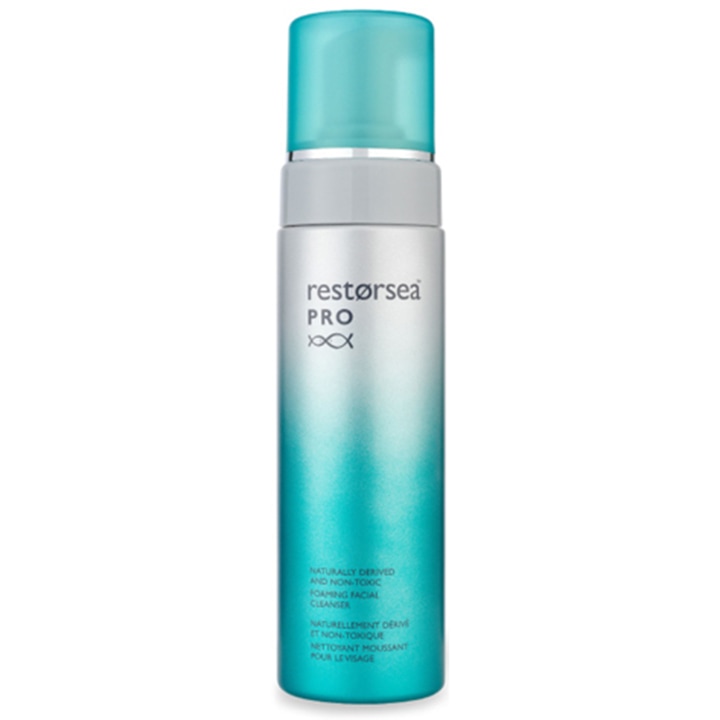
It's "great for those with combination skin that need to get it clean but want to avoid irritation or dryness," she said.
For moisturizing combination skin, she loves this hydrator from SkinMedica.
SkinMedica HA5 Rejuvenating Hydrator, $178, Amazon
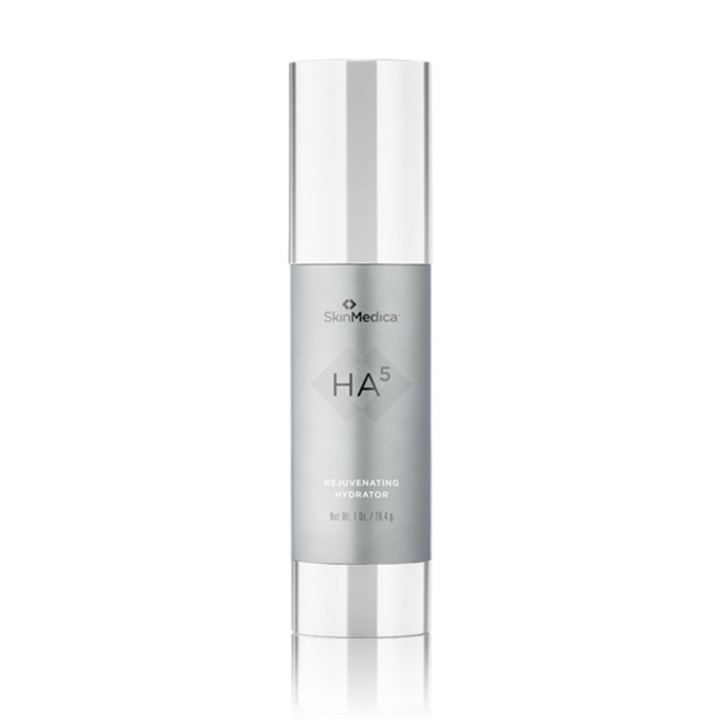
It's "silky smooth on the skin" and has a "great blend of hyaluronic acid molecules to hydrate without leaving the skin feeling greasy," she said.
6. Normal skin
As with combination skin, it's tricky to define normal skin. "Normal" just means whatever is normal for you, Day points out.
"I don't really think there is such a thing as 'normal skin,'" she told TODAY. "You have your normal, so your normal will be combination, dry or oily. I guess if you want to make a category, normal skin is skin that can tolerate most things without overreacting."
Baumann agrees that there is no medical definition of normal skin, but broadly speaking, it could mean that the skin is healthy and well hydrated.
"Normal skin makes enough sebum to hydrate the skin, so, in reality, normal skin is oily skin with just enough sebum production to keep skin healthy," she said. "'Healthy skin' would be a better word, but that is not a true skin type either."
While normal skin varies from person to person, Day has some products she recommends for people who don't tend to overreact to skin care ingredients.
She loves this facial cleanser from SkinMedica.
SkinMedica Facial Cleanser, $38, Amazon

It "removes pollution and makeup without leaving the skin feeling stripped and without overstripping or drying the skin," she said.
For a moisturizer, she recommends this hydrating gel from SkinCeuticals.
Skinceuticals Hydrating B5 Moisture-Enhancing Gel, $82, Amazon

It's an "oil-free moisturizer with B5 (that's) great for all skin types," she said.
Different Type of Fences Pictures
Source: https://www.today.com/style/5-different-skin-types-which-type-skin-do-you-have-t152786